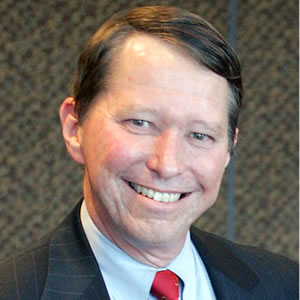What do you say when people ask, “What do you do?” Depending on where you are, if you simply tell them they likely won’t understand or will just respond with, “Oh.” Just giving them an info dump on what you do is “you centric.” It’s a monologue, not a dialogue. However, if you frame your reply in a way that’s inviting them to share and connect with what you do, they will understand and relate to what you do…and that makes for a whole different experience for both of you.
That’s an experience much more likely to lead to a real connection, business opportunities, and a clear understanding of your value when in interviews.
Here’s an example of this strategy at work.
Colleen was at a conference for Healthcare executives last month. She was determined to try out a different way of talking to people while she was there.
You see, Colleen, while fantastic at her job, was very uncomfortable just making small talk in situations where she was likely to never see the other people again. Hard to get invested, I’m sure you can understand. She viewed the whole thing as mindless chit chat and a stressful waste of time. While this is how she felt, Colleen was self-aware enough to realize this mindset was a weakness that was holding her back from creating new business connections that would benefit her company, and her career. And she just didn’t like the anxiety she felt around what she called “hobnob situations.”
To improve her communication skills in this environment, Colleen decided to try something her ExecuNet coach suggested, something she could take into her everyday life…if it worked with the strangers at the conference. She was going to stop saying, “I run medical facilities that provide MRIs and CT scans” and instead ask the person she’s speaking with questions related to what she does so that they can connect and maintain control of the direction of the conversation. People are much more engaged if they can form a personal connection to what’s being said, and no matter what the situation, the person doing most of talking walks away with a better feeling about the conversation.
It worked! Wherever Colleen was asked about what she does, she asked, “Do you know anyone who has had an MRI or a CT scan?” This immediately threw the ball back into the other person’s court and let them connect with what she does in a meaningful way. Naturally, almost everyone she spoke with replied “yes” to her question, so when she proceeded to say that she runs a business with that type of equipment, they all could immediately understand and see the value of what she did and even felt a personal connection with her. By bouncing their initial question back with a question of her own, she creates a connection between her work and the person she’s speaking with and also invites more of a give-and-take discourse, which the other person will remember more fondly than having simply had info dumped on them.
The one person who replied, “no” was not a problem. She simply pivoted and asked the person to imagine someone has been having bad abdominal pains and needed scans to see if it was an ulcer, appendix, tumor, blockage, or something else that was the problem…easy to relate to.
Executives need to have well-developed communication skills, to run their company, to network, and interview effectively for future opportunities. If you want to get hired or do business with people, you need them to understand what you do and how you can help them. If they are confused, they won’t hire, pursue, or think of you. This strategy is a bit of storytelling and give-and-take way of answering one of the most common questions that we all get asked.
So, give it a try. Think of what question you can ask to put the person you’re speaking with into the shoes of your typical client so they can connect and truly understand what you do. You’ll be answering their question with a dialogue instead of a monologue, and great things can happen from that!






